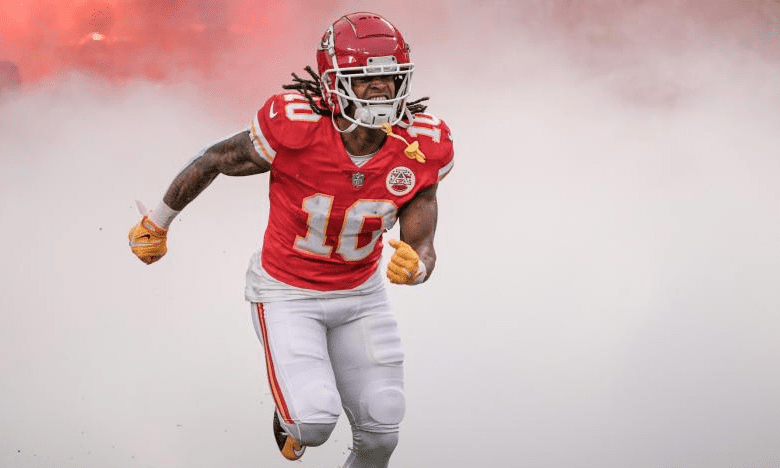Analyzing the Value of Running Backs

The value of the running back has been highly debated in recent years. NFL GMs seem to have differing opinions on drafting running backs, with some drafting a back with a top pick, while others wait until the second or third day to pick up a running back. With players like Bijan Robinson and Blake Corum set to be the top running backs picked in the 2023 draft, the question becomes where do you get the best value?
In the 2022 NFL Draft, there were a total of 23 running backs taken. Although many of those backs did not make any significant contributions, there were a few gems to be found. Take, for example, Isiah Pacheco. The Chiefs selected Pacheco in the 7th round, and while the beginning of the season was not great for Pacheco, he found himself as one of the biggest impact players for Kansas City at the end of the regular season and the playoffs. Pacheco made $934,777 against the salary cap in the 2022-2023 season, giving him incredible value. Pacheco is not the only one. Players like Tyler Allgeier, Dameon Pierce, and Brian Robinson all made significant contributions to their teams as rookies this season with a very modest price tag.
On the other side of the spectrum, the largest running back contract belongs to Ezekiel Elliott, who was drafted 4th overall in 2016. Elliott has been a force since entering the league, recording 4 seasons where he reached the 1,000-yard plateau. In 2022, Elliot rushed for 876 yards, while carrying a price tag of $15,000,000 for the season. Add in the fact that the Cowboys best running back was not Elliott, and instead was Tony Pollard, a player on his rookie contract taken in the 4th round of the 2019 draft. The Cowboys, who signed Elliott to a 6-year, $90,000,000 contract in 2019, look highly unlikely to get a $90 million dollar value out of Elliott.
Josh Jacobs and Saquon Barkley were two of the best backs in the NFL last season, with both recording over 1,300 yards on the ground. Like Elliott, Barkley and Jacobs were first-round draft selections, as well as producing multiple seasons rushing over 1,000 yards. With these two backs both playing on their rookie deals, their teams are getting an incredible value at the position. Barkley is due for an extension this offseason, and while nothing has been signed yet, the Giants might want to be careful when considering the contract.
One factor when considering the value of a running back is their injury history. We have seen in recent years older running backs on their second contract constantly playing through injuries, or even missing a few games per year. Alvin Kamara and Christian McCaffrey were two incredibly electrifying players in their early careers, and while both players received their big payday, they have both been plagued by the injury bug over the past few seasons. Their value, because of their contracts, is not what they once were. This can be seen with the trade of Christian McCaffrey. Not long after the Carolina Panthers signed him to a long extension, they turned around and traded him, receiving and 2nd, 3rd, and 4th round pick in 2023, and a 5th in 2024.
This is not always the case. We have seen running backs on their second contract perform at a high level for a long time. The most obvious example is Derrick Henry. Henry, while boasting one of the top 5 running back contracts, continues to dominate the NFL and be among one the league leaders in rushing every year. Probably the most significant contributor to Henry’s long-term success is his usage. Despite having the most rushing attempts in three of the past four seasons, Henry was not used nearly as much earlier in his career. At Alabama, Henry only had one season with over 200 carries, and his first few years in the NFL were spent behind Demarco Murray. His reduced workload allowed him to save his body and be more productive for a longer time, making his value one of the highest among running backs.
The value of the NFL running back might not be what it once was, but it may be more important than ever. In the salary cap era of the NFL, it just does not make sense to sign a back to the long, expensive extension. With injury concerns and an all-around talent surplus, expect teams to start looking to replenish their running backs in the later draft rounds, rather than using premium picks and free agency to fill their needs.
![]()
